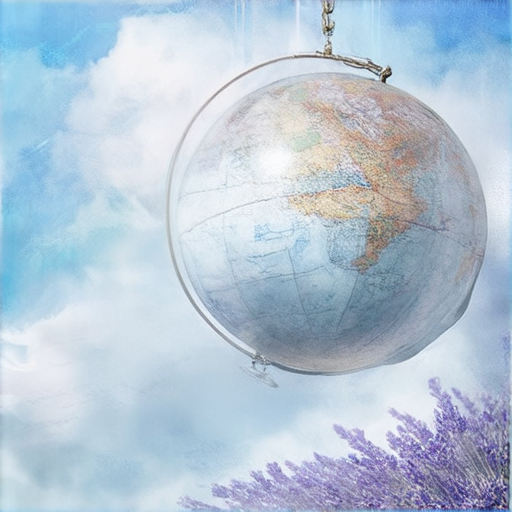For those who have ever been bitten by the travel bug, there’s nothing quite like immersing oneself in the captivating tales of others who have ventured into the unknown. International travel stories have a way of transporting us to far-flung lands, evoking emotions, and sparking our imagination. Whether you’re a seasoned traveler or simply someone who dreams of exploring the world beyond your doorstep, the allure of these stories is undeniable. From the thrill of discovering hidden gems to the comfort of knowing we’re not alone in our adventures, inspiring international travel stories have the power to transform our perspectives, fuel our wanderlust, and leave us yearning for more.

The 3 1 1 Rule for International Travel
The 3 1 1 rule is a set of guidelines established by the Transportation Security Administration (TSA) to regulate the transportation of liquids, aerosols, gels, creams, and pastes in carry-on bags.
- 3: A passenger can bring one quart-sized bag of liquids, aerosols, gels, creams, and pastes through security checkpoints.
- 1: Each item in the bag must be 3.4 ounces or less.
- 1: All items in the bag must fit in a single, clear, quart-sized zip-top bag.
This rule applies to all domestic and international flights, and failure to comply may result in confiscation of prohibited items or additional screening.
When packing for international travel, it’s essential to remember that some countries have stricter regulations regarding the transportation of certain items, such as medications, electronics, and perishable goods.
To ensure a smooth journey, always check with your airline and destination country’s authorities for specific requirements before departure.
Additionally, consider packing essentials like toiletries, medications, and electronics in checked luggage to avoid any potential issues during security checks.
By understanding and following the 3 1 1 rule, you’ll be well-prepared for your international travels and minimize any potential disruptions.
Risks of International Travel
As a seasoned traveler, I’ve learned that venturing abroad can be a thrilling adventure, but it also comes with its fair share of risks.
-
Health Risks
- Vaccination requirements vary depending on the destination, and some countries may have strict regulations regarding vaccinations.
- Travelers may be exposed to diseases such as malaria, dengue fever, and Zika virus, which can be prevented with proper precautions.
- Food and waterborne illnesses are common in developing countries, making it essential to drink bottled or filtered water and eat at reputable restaurants.
-
Criminal Activity
- Pickpocketing and petty theft are common in tourist areas, so it’s crucial to keep valuables secure and be mindful of surroundings.
- Terrorism and civil unrest can occur in certain regions, making it essential to stay informed about local conditions and register with your government’s travel advisory program.
- Scams and confidence tricks are prevalent in many countries, so it’s vital to be cautious when interacting with strangers and avoid carrying large amounts of cash.
-
Natural Disasters
- Earthquakes, hurricanes, and tsunamis can occur in various parts of the world, making it essential to stay informed about local weather conditions and emergency procedures.
- Floods and landslides can be devastating, especially in areas prone to heavy rainfall or deforestation.
- Volcanic eruptions can cause widespread destruction and disrupt air travel, so it’s crucial to monitor local news and follow evacuation instructions.
-
Financial Risks
- Currency fluctuations can affect the value of your money, making it essential to exchange currency wisely and be aware of local banking hours.
- ATM scams and credit card skimming are common, so it’s vital to use reputable machines and monitor account activity regularly.
- Travel insurance can provide financial protection against unexpected events such as trip cancellations or medical emergencies.
-
Personal Safety
- Respect local customs and laws to avoid unintended consequences, such as fines or imprisonment.
- Avoid traveling alone, especially at night, and stay in well-lit and populated areas.
- Keep emergency contact numbers handy, such as the local police department and embassy, in case of an emergency.
By understanding these risks and taking necessary precautions, you can minimize your exposure to potential dangers and enjoy a safe and rewarding international travel experience.

Writing About My Travel Experience
I’ve had the privilege of traveling to numerous countries, immersing myself in diverse cultures, and discovering hidden gems.
-
Tips for Writing a Compelling Travel Story
- Start with a captivating opening sentence that sets the tone for your story.
- Describe the sights, sounds, and smells of your destination to transport your readers to the scene.
- Share personal anecdotes and reflections to add depth and emotion to your narrative.
- Include interesting facts and historical tidbits to educate and engage your audience.
- Use vivid descriptions and sensory details to bring your story to life.
-
Best Practices for Writing About Travel Experiences
- Maintain a professional tone and avoid clichés and stereotypes.
- Use descriptive language and avoid jargon or technical terms that might confuse your readers.
- Keep your paragraphs concise and focused, using transitional words and phrases to connect ideas.
- Proofread carefully to ensure accuracy and grammar.
- Use images and multimedia elements to enhance your story and break up text.
-
Why Share Your Travel Stories?
- To inspire others to explore new places and cultures.
- To share your passion for travel and adventure.
- To document your memories and reflect on your experiences.
- To connect with like-minded individuals who share your interests.
- To showcase your writing skills and creativity.
-
Where to Share Your Travel Stories
- Blogging platforms like Medium and WordPress.
- Social media channels like Instagram and Facebook.
- Travel communities and forums like Lonely Planet and TripAdvisor.
- Online publications and magazines that focus on travel and culture.
- Your own website or portfolio.
-
Conclusion
- I’ve been accused of being a travel addict, always chasing the next adventure and never staying in one place for too long.
- But is travel truly just escapism, a way to avoid dealing with the problems and challenges of everyday life?
Sharing your travel stories can be a rewarding and enriching experience, allowing you to connect with others and preserve your memories. By following these tips and best practices, you can craft compelling narratives that inspire and engage your audience.

Is Travel Just Escapism?
As a traveler and a cultural explorer, I’ve often found myself pondering the true nature of my wanderlust.
The Complexities of Escapism
Educational psychologist Mihaly Csikszentmihalyi defines escapism as “the tendency to seek out activities that allow us to temporarily escape from our daily routines and responsibilities.”
- While traveling can certainly provide a temporary reprieve from the stresses of daily life, it’s not necessarily a negative thing.
- In fact, research has shown that taking breaks and engaging in leisure activities can actually improve our mental health and productivity.
The Benefits of Travel
So why do we travel? Is it simply to escape, or is there something more to it?
- We travel to learn about different cultures and ways of life.
- We travel to challenge ourselves and push beyond our comfort zones.
- We travel to connect with others and form meaningful relationships.
A Balanced Approach
Ultimately, whether or not travel is escapism depends on how we approach it.
- We can use travel as a means of avoidance, escaping from our problems rather than facing them head-on.
- Or we can use travel as a tool for growth and self-discovery, challenging ourselves to become better versions of ourselves.
Conclusion
Travel is complex, multifaceted, and open to interpretation.
Whether or not it’s escapism ultimately depends on our intentions and motivations.
By approaching travel with a balanced mindset and a willingness to grow, we can harness its transformative power and return home feeling refreshed, renewed, and ready to take on whatever challenges come our way.
Regret Not Traveling
We’ve all heard the phrase “travel broadens the mind,” but what happens when we don’t get to explore the world as much as we’d like? A recent study found that younger generations are the ones who most regret not traveling.
- Traveling less frequently
- Not visiting enough places in the countries I traveled to
- Not going to more off-the-beaten-path locations
- Not being more adventurous when traveling
At Bending Borders, we believe that exploring different cultures and experiencing new things can have a profound impact on our lives. That’s why we’re dedicated to sharing travel stories, global insights, and diverse perspectives through our blog posts and storytelling.
- Our platform, Bending Borders Blogs, features articles on unique destinations, travel tips, and cultural insights from around the world.
- We also highlight the work of other cultural exploration platforms, such as Culture Trip and Matador Network.
- These platforms offer valuable resources for travelers looking to learn about different cultures and plan their next adventure.
So, what can you do if you’re feeling regretful about not traveling as much as you’d like? Start by planning a trip, whether it’s a weekend getaway or a longer vacation. Research different destinations and cultures, and reach out to friends or family members who may be able to join you.
Why Travel Matters
Travel has the power to broaden our minds, challenge our assumptions, and inspire us to see the world in new ways. By exploring different cultures and experiencing new things, we can gain a deeper understanding of ourselves and the world around us.
Get Started Today
Don’t let regret hold you back from exploring the world. Start planning your next adventure today, and discover the many benefits of travel for yourself.

Is Traveling an Addiction?
As someone who has spent countless hours exploring the globe, I’ve often wondered if my love for travel could be considered an addiction.
- The Psychology Behind Travel Addiction
- The Signs and Symptoms of Travel Addiction
- Breaking Free from Travel Addiction
The Psychology Behind Travel Addiction
Travel addiction, also known as dromomania, is a psychological disorder characterized by an intense desire to travel and explore new places. According to the Diagnostic and Statistical Manual of Mental Disorders, individuals with travel addiction exhibit abnormal impulses to travel and are willing to sacrifice personal relationships, financial stability, and even their own well-being to satisfy their wanderlust.
The Signs and Symptoms of Travel Addiction
So, how can you tell if you’re addicted to travel? Here are some common signs and symptoms:
- You feel anxious or restless when you’re not planning a trip or preparing for departure.
- You’ve sacrificed important relationships, work opportunities, or financial stability to fund your travels.
- You feel a strong sense of FOMO (fear of missing out) when you’re stuck in one place for too long.
- You’ve developed a pattern of impulsive behavior, such as booking last-minute flights or making spontaneous decisions to change your itinerary.
- You feel a deep sense of satisfaction and fulfillment when you’re exploring new places and experiencing different cultures.
Breaking Free from Travel Addiction
If you recognize yourself in these signs and symptoms, don’t worry – there’s hope! Breaking free from travel addiction requires a combination of self-awareness, discipline, and strategy. Here are some tips to get you started:
- Set boundaries and priorities: Make a list of what’s truly important to you and set realistic goals for your travels.
- Plan ahead: Research your destinations, budget, and itinerary carefully to avoid last-minute stress and financial strain.
- Practice mindfulness: Take time to appreciate the present moment and enjoy the journey, rather than constantly focusing on the next destination.
- Seek support: Share your struggles with friends and family, and consider seeking professional help if you feel overwhelmed.
Conclusion
While travel addiction may seem like a glamorous condition, it’s essential to acknowledge its potential risks and consequences. By recognizing the signs and symptoms, setting boundaries, and practicing mindfulness, you can break free from travel addiction and cultivate a healthier relationship with exploration and adventure.

0 Comments